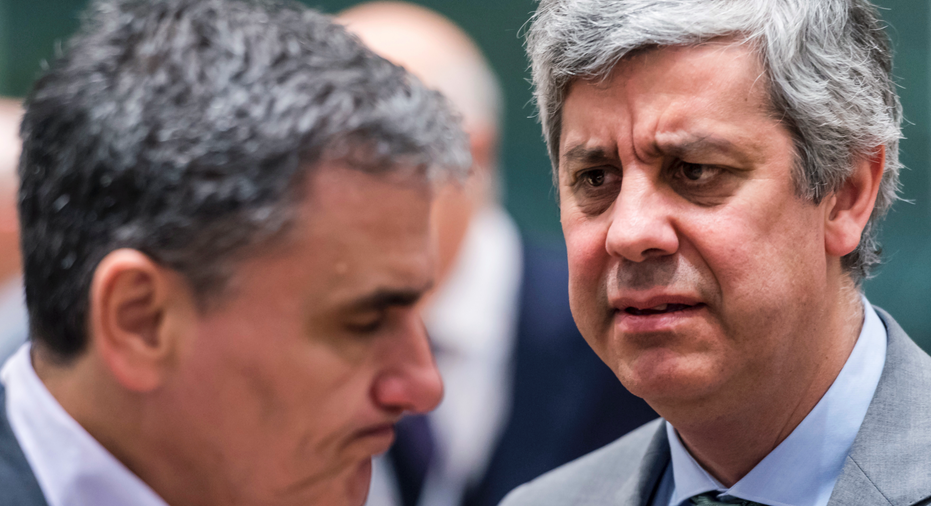Eurozone looks to final stages of Greek bailout

BRUSSELS – Eurozone finance ministers warmly endorsed Greece's financial progress Monday in the latest review of Athens' bailout program, putting the country on track to emerge from its eight-year rescue this summer.
Finance ministers of the 19-nation eurozone said there was little doubt that Athens would soon get the green light for another disbursement of 6.7 billion euros in bailout money starting next month.
After years of other eurozone nations griping about Greece's foot-dragging and unwillingness to bend to the demands of creditors, the 19 finance ministers were congratulatory in their assessment of the recalcitrant member.
"The Greek authorities have over-achieved the fiscal targets set over the last three years," the eurogroup said in a statement, adding that "Greek authorities have also continued to strengthen tax collection."
On top of it, the ministers said Athens had "enhanced the fairness and effectiveness of the social welfare system. The business environment has been improved by further actions."
EU Financial Affairs Commissioner Pierre Moscovici said the eurozone should prepare for "a successful conclusion, which means Greece being back as a normal member of the eurozone and the final signal — the end of the Greek crisis."
"It is a great effort by the Greek authorities," Moscovici said.
Mario Centeno, the president of the eurozone finance gatherings, said "we have great expectations" when it comes to settling the Greek financial crisis.
Greece's struggles to deal with its massive debts have dominated the eurozone for most of the past decade.
Instrumental to the progress was the Greek parliament's approval last week of a batch of reforms. The measures include tougher conditions for unions to call strikes, speedier property foreclosures to help reduce the amount of bad loans on banks' balance sheets and cuts in family benefits.
"Greece has adopted next year's budget respecting the primary surplus target of 3.5 percent of GDP. Greece has overperformed over the last three years," the EU's euro commissioner, Valdis Dombrovskis, said.
Greece has depended on international loans since 2010. After the bailout program expires this summer, the country is expected to finance itself by borrowing directly from global investors.
___
Derek Gatopoulos contributed from Athens.



















